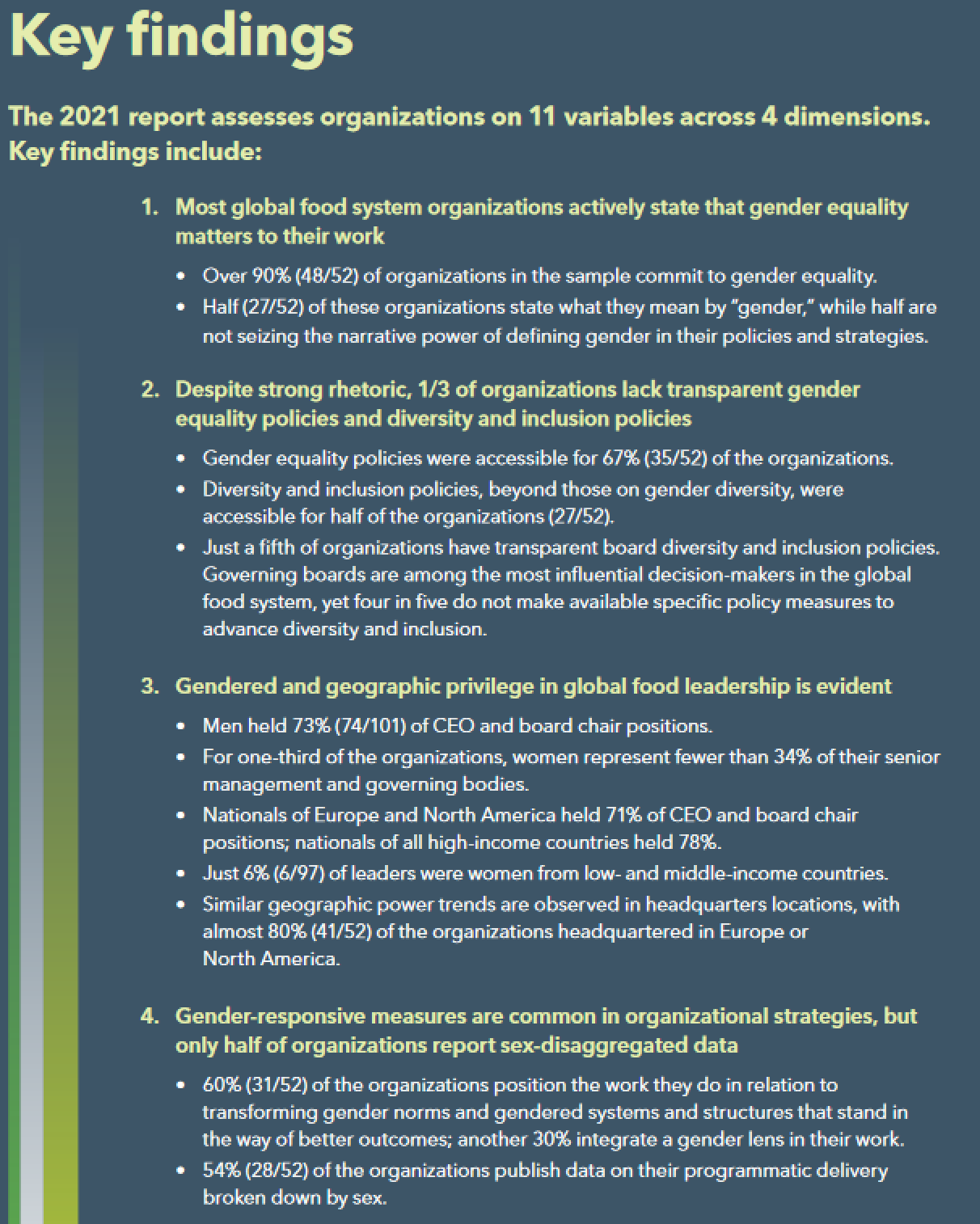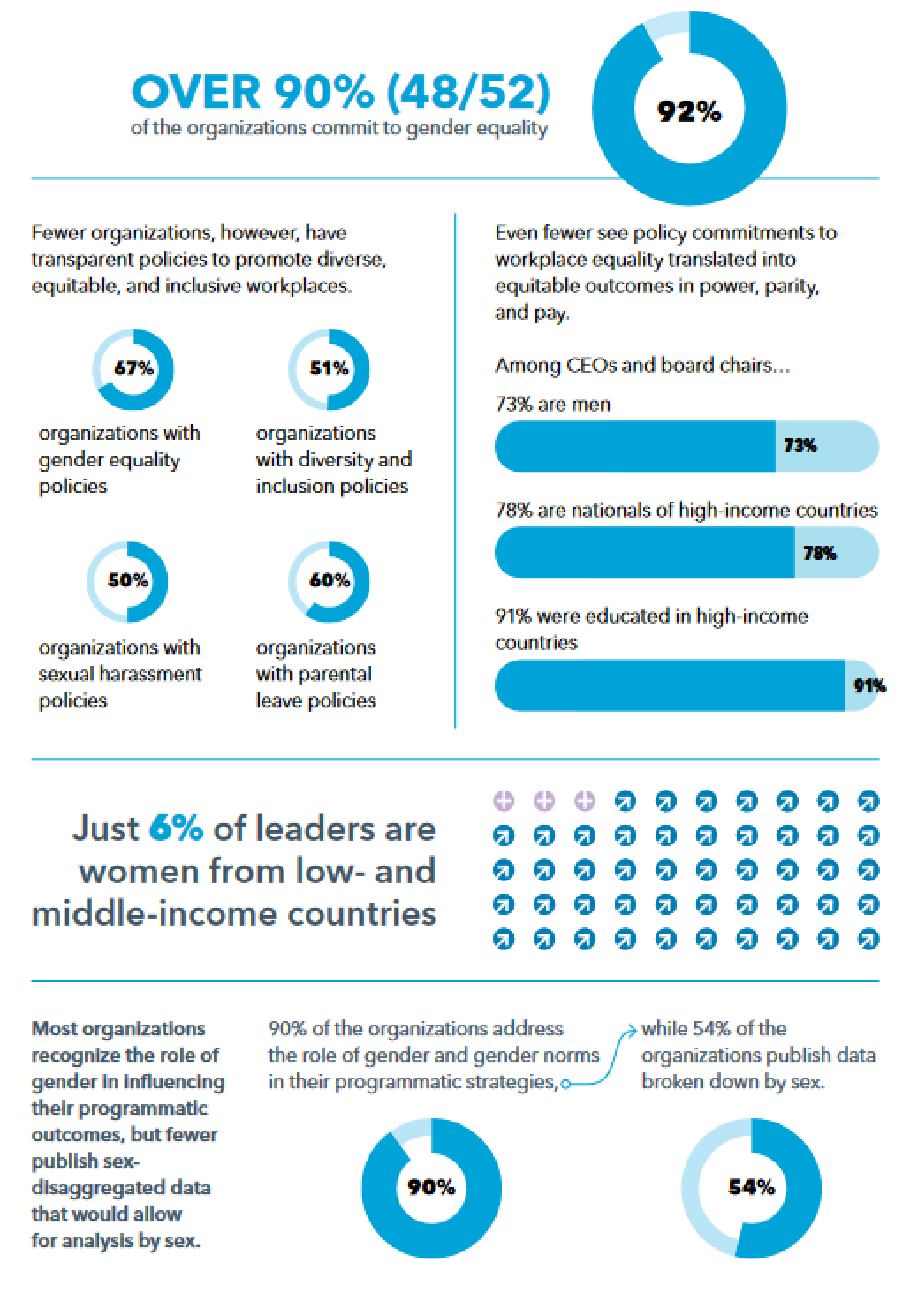The Food Systems Summit features action commitments collectively developed by thousands of actors, including commitments to confront discrimination and gender inequality across the global food system. The primary aim of the Global Food 50/50 Report is to catalyze faster progress in this journey by enabling enhanced accountability driven by rigorous evidence. A second aim is to increase recognition of the role that gender plays in the food system for everybody — women and men, including transgender people, and people with non-binary gender identities. This Report presents measures of how well an initial sample of global food system organizations are acknowledging and addressing gender as a determinant of opportunity, access, and participation in the global food system.
This inaugural 2021 Global Food 50/50 Report reviews the gender- and equity-related policies and practices of 52 global food system organizations as they relate to two interlinked dimensions of inequality: inequality of opportunity in career pathways inside organizations and inequality in who benefits from the global food system. The Report shows that organizational commitment to gender equality is high, and that over half of the organizations are transparent about their policies for shaping diverse, inclusive, and equitable working environments. The data also suggest, however, that rhetoric may be used as a substitute for action.
Organizational leadership — CEOs and board chairs — remains disproportionately male and dominated by European and North American nationals. In the face of multiple global crises, a global food system dominated by individuals and institutions in high-income countries forgoes essential talent, knowledge, and expertise, with serious implications for progress toward a sustainable and equitable global food system. The Report further finds that gender, as a key social dynamic that influences opportunity, access, and power in the global food system, remains under-appreciated, under-counted, and under-addressed. The data in this inaugural report can equip leaders at all levels — from communities to workforces to boards — to take concrete action, drive change, measure progress, and hold those in power accountable to their commitments to advance gender equality and transform food systems. A fairer, more gender-equal system will be best placed to end hunger, poverty, and inequality around the world.


| Year of publication | |
| Publisher | Global Health 50/50 and the International Food Policy Research Institute (IFPRI) |
| Geographic coverage | Global |
| Originally published | 12 Oct 2021 |
| Knowledge service | Metadata | Global Food and Nutrition Security | Sustainable Food Systems | Food systemGender policy |
| Digital Europa Thesaurus (DET) | gender equalityorganisation |
